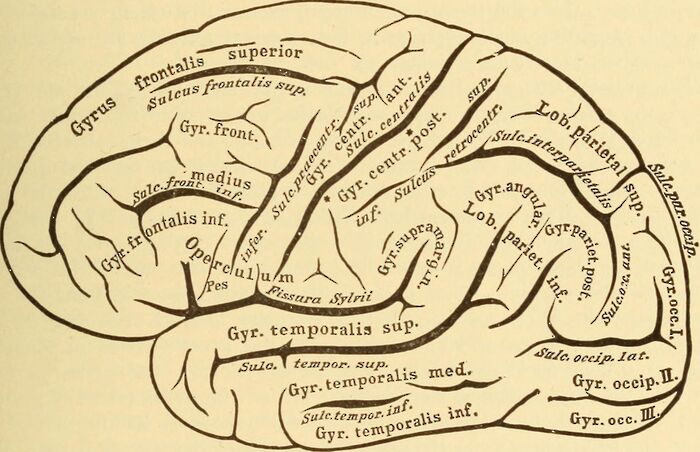Medication, my mind and me
Jamie Hancock continues his column with a discussion about his experiences of taking antidepressants at Cambridge

Content note: this article discusses symptoms of anxiety, as well as mental health medication and its potential side effects
I was scared to try medication. I think that a lot of people are. For some, to take medication seems to be an admission of weakness – an acceptance that their ways of coping are not working. For others, they associate it with a fear that by taking something which affects your brain, you might lose who you are. Many people are afraid of the impact that side effects might have on their lives. I experienced all of these worries and more.
Any doctor will tell you that, in general, antidepressants and similar therapeutic medications are not intended for permanent use. They are part of a toolset, used alongside various therapies. The aim is for you to become well enough that you no longer need them.
I’ve collected the stories of several friends to illustrate the diversity of experiences that come under ‘taking medication’ beyond my own. Every case is different. Several of them have had to try multiple medications before they discovered one which worked best for them. Several, like me, have experienced a range of adverse side effects. Some are taking just one type of medication, be that an antidepressant SSRI (selective serotonin re-uptake inhibitors), a beta-blocker or mood stabiliser (for bipolar disorder). Some are taking several, to treat a variety of issues.

I want to make clear that I am not a medical professional. This is not a source of advice about which medication might be right for individuals, or whether anyone should or should not take medication. If you are considering whether medication might be a solution for you, please go and speak to your GP or psychiatrist.
When I decided to try medication for my anxiety last February, I was in such a state that I was ready to ignore my fears. Anything was better than this.
For all the difficulties that I have faced since, I will always be glad that I did. I later discovered the medication I was on initially – citalopram, an SSRI – was not correct for me, but I am determined to find one which is.
Like other SSRIs, citalopram it is used to treat both anxiety and depression. I was warned about the potential side effects which the medication could give me. For the first two weeks of use, they can range from tiredness and increased anxiety to extreme euphoria or suicidal thoughts. However, I was told that in most cases these went away by the end of the trial period. And so, in the fourth week of Lent Term, neck-high in essays and reading, I started taking a mind-affecting drug.
My side effects came immediately. I felt as if I was floating (the term I used at the time); that I was high and not quite there. It was quite enjoyable at first. I had academic meetings where it felt as if I was sinking into my chair with relaxation. And, in this strangely-distanced reality, my feelings of panic, anxiety and depression seemed to vanish.
I started to enjoy life in a way I don’t think I had for years
I now know that, though they largely receded by the end of the trial period, these feelings should have caused more concern. Though the feelings were positive at the time, it seems the medication was not having the intended effect. The same feelings of depersonalisation and derealisation came back to haunt me in an incredibly negative and dangerous way this term – at which point I realised that they had, in fact, never entirely left. I’m now coming off my citalopram and waiting for further assessment to see what treatments and medications might be more effective.
Balancing side effects with my academic work and life was difficult. It was made far easier by the support network I had assembled by this point. My Director of Studies let my supervisor know, in case I needed to skip essays or supervisions. I had advice from my college nurse and could talk to my counsellor when I needed to. I called friends on a regular basis. As my mood began to stabilise, I started to enjoy life in a way I don’t think I had for years. In fact, I was enjoying the citalopram so much that I asked to not increase my dose, as I was worried what might happen.
Some of my friends have had very different experiences. One friend on fluoxetine, another SSRI, had no side effects and has remained on it since. Though they continue to experience periods of low moods and have had trouble sleeping (since countered by sleeping medication), it is “now at manageable levels”, allowing them to “do both ordinary tasks and extraordinary things” they “would not have thought possible a few months previously”. Another has also been on fluoxetine for four years. They found that when they increased their dose from 20mg to 40mg, they “reacted really, really badly and ended up having a breakdown”. Now, at 30mg, “it doesn’t make [them] feel happy but it keeps [them] feeling relatively normal.”
As doctors will tell you, skipping or choosing to stop taking the medication without guidance can be very dangerous. Another of my friends, taking the SSRI Sertraline, missed their dose for 36 hours and found that their symptoms “came back so hard” that they tried to commit suicide.
Similarly, reducing and increasing dosages has to be done with supervision. In the last two weeks, as I’ve started to come off my dose, my moods have ranged from manic to a sense of existential bleakness and ennui. Working was very difficult towards the end of term (yes, prelimmers do work. It’s shocking, I know). But I’m looking forward again, positive for the future.
As one of my friends has said to me, medication “can profoundly change your life for the better”. Choosing to take it is not an admission of failure. It is not a sign of weakness. Like my mental illness, I will not let it define me as a person. It is one aspect of my recovery of a normal life.
 Features / Should I stay or should I go? Cambridge students and alumni reflect on how their memories stay with them15 December 2025
Features / Should I stay or should I go? Cambridge students and alumni reflect on how their memories stay with them15 December 2025 News / Cambridge study finds students learn better with notes than AI13 December 2025
News / Cambridge study finds students learn better with notes than AI13 December 2025 News / Dons warn PM about Vet School closure16 December 2025
News / Dons warn PM about Vet School closure16 December 2025 Comment / The magic of an eight-week term15 December 2025
Comment / The magic of an eight-week term15 December 2025 News / News In Brief: Michaelmas marriages, monogamous mammals, and messaging manipulation15 December 2025
News / News In Brief: Michaelmas marriages, monogamous mammals, and messaging manipulation15 December 2025









